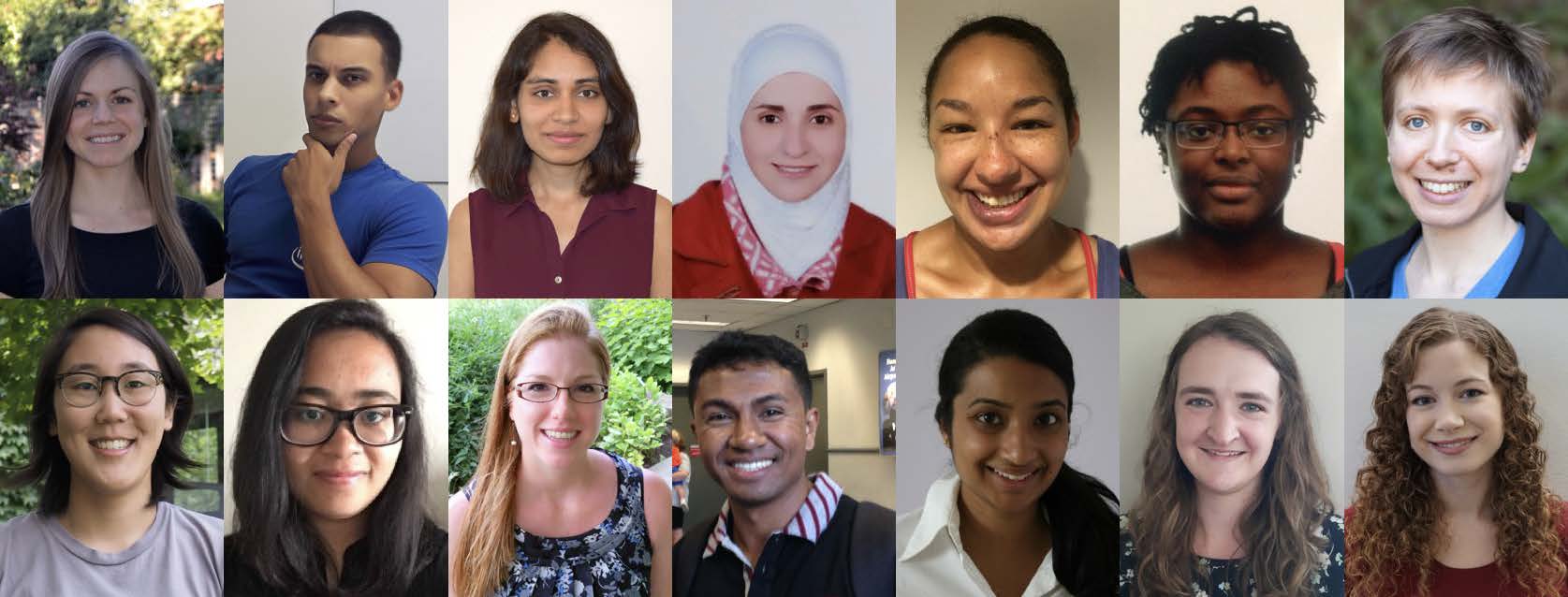Deborah Hanus
Advice for your ACM SIGHPC/Intel Computational & Data Science Fellowship application

The ACM SIGHPC/Intel Computational & Data Science Fellowship is a mouthful to say, but it is a wonderful fellowship to have. It provides graduate student awardees an annual $15K to offset the costs of their program, renewable for up to five years. As one of the fellowship's inaugural awardees, I've had several people ask me for application tips, so here, I'll share what I know.
The application has three parts, each of which needs to be completed by a different person, so you should request a nomination as early as possible The application usually opens around March 15, and is due around April 30.
Application Walkthrough
Step 1. Advisor Nomination Letter
Only one student per department can apply for this fellowship, so your advisor will usually need to check with your department before nominating you. They will also answer a number of demographic questions and two short essays. A few questions of note follow.
-
What is the student’s graduation year?
While this fellowship may be renewable for up to 5 years, your estimated graduation year will define how long you will actually qualify to renew the scholarship. Therefore, if you are applying from the US or another country that may have indefinitely long PhD’s, you should round your estimated graduation date up to ensure you can continue to renew.
-
How is the student a part of an underrepresented group?
If you are a part of any underrepresented groups that your advisor might not know about, you may want to inform her before she fills out the nomination, so that she can answer this question as completely as possible.
-
How is the student’s project related to data and computational science?
Your advisor should discuss how your work will both use high performance computing and have an impact.
Step 2. Candidate Application
After your advisor has secured your nomination, you will receive your application form. For this form, the three notable items of information are:
-
Your biographical sketch
Many people have asked me for a copy of my biography. Unfortunately, I no longer have it. However, 150 words is quite short, so I expect I described my major achievements, without saying much else that was particularly ground-breaking.
-
Your research motivation
The selection committee only wants to give this award to people who are definitely going to complete their degree program. Therefore, in this section, you should be able to state the impact of your work in plain english and sound enthusiastic to be working on it.
-
Your Curriculum Vitae (CV)
This is the only real place that you, as an applicant have to display your achievements. All standard resume and CV advice applies. If your work achieved something, explain what it achieved, and use numbers wherever possible.
Step 3. Endorsement Letter
- This is a more standard letter of recommendation, which asks your endorser to both quantify and comment on how amazing you are. You should select someone who has done research with you, thinks you fantastic, and knows how to write a good letter of recommendation.
General information & advice
-
Because this fellowship provides up to 5 years of funding, they seem to prefer applicants who are relatively early in their graduate career.
-
The program’s goal is to “increase diversity in high performance computing.” They do this on several dimensions:
-
Universities. By requiring you to get department approval to apply, they ensure that they receive only one applicant per department per school.
-
Academic Discipline. This is NOT a fellowship just for computer scientists. Last year, I was the only awardee studying in a computer science department. My cohort included ecologists, astrophysicists, and more. If you use high performance computing (and are under represented in your field), you should definitely consider applying for this fellowship.
-
Individual. The characteristic that stood out to me most about the other awardees in my cohort was their incredible resilience. Most of the awardees had to overcome significant challenges to get to where they were.
-
Given how short the applicant’s section of the fellowship application is, my working hypothesis is that the nomination and endorsement letters carry more weight than the applicant’s section. Therefore, I would advise you to write a good biography, a clear description of why you care about your work, and get feedback on your curriculum vitae. Beyond that, I would urge you to not stress much about this application. By the time you gain your department’s nomination for this award, you’ve already completed the hardest parts of the application – finding people who believe in and support you. And that will pay massive dividends throughout your graduate career, whether or not you win this award.
Written on April 29th, 2017 by Deborah Hanus